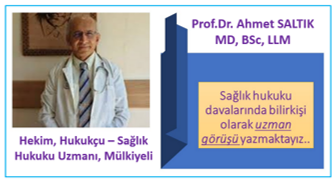Dostlar,
Birleşik Devletler Uluslararası Dinsel Özgürlük Komisyonu,
4 Şubat 2013’te yayımladığı yıllık raporda Türkiye’ye de birkaç paragraf ayırmıştı.
Öz olarak bu metinde Türk hükümetinin “laisite” uygulamalarını gevşetmesi övülmekte, yabancı vakıflara mallarının iadesi yüreklendirilmekte ve başörtüsünün (türbanın) üniversiteden kaldırılması cesaretli – yerinde adımlar olarak nitelenmekte..
Benzer girişimlerin sürdürülmesi özlemi açık – örtük olarak metinde işlenmekte..
Yeni anayasa ile dinsel özgürlüklerin genişletilmesinin düşünüldüğüne değinilmekte.
AKP’nin son “AÇILIM” paketi ile (30.9.13) sözde demokratikleşme adına laik – seküler düzen adına ne kaldı ise onları da tasfiye kör cesareti bu Raporla bir biçimde
ilişkili mi acaba?
Bilimsel kuşkuculuk (scientific skepticism) işte..
- Batı ne yaptığının ayrımında mı acaba??
Türk toplumu Osmanlı döneminde 600 yıl din – tarım topluluğu (ümmet – cemaat) idi..
Mustafa Kemal Paşa, toplumsal altyapı dokusu hiç elvermediği halde büyük bir cesaretle (Devrimcilik!) Anadolu halkını laik – seküler düzene taşıdı ve demokrasinin omurgasını inşaya koyuldu.
Avrupa’da Kilise totalitarizminden ve mezhep savaşlarından arınarak laik – seküler düzene geçiş için 100 Yıl Savaşları yaşandı.. Çoooook ama çooooooooook kanlı oldu..
Ancak bu ağır bedellerle toplum laik- seküler değerleri içselleştirebildi..
Biz de mi onlarca yıl iç savaş yaşayalım??
Batı’lı “aydın” dostların doğal Rönesans müttefiklerimiz olmasını,
hükümetlerinin Türkiye’ye dönük bu tür sorumsuz, ayakları yere basmayan
sözde özgürlükçü – insan haklarıcı girişimlerini engelleyemeseler de en azından eleştirmelerini ve sınırlandırmalarını beklemek hakkımızdır.
- Batı uygarlığı bu denli aymaz, ayakları yerden kesik ya da
içinden pazarlıklı (iki yüzlü?!) olabilir mi?? Yakışır mı??
Hele bir de adına koca retorik tuzakla “stratejik müttefik” deniyor ve
aynı çuvala giriliyorsa?? AB’ye katılma hülyaları 1959’dan beri kavuruyorsa..
Sevgi ve saygı ile.
03.10.13, Ankara
Dr. Ahmet SALTIK
www.ahmetsaltik.net
========================================

| Did You Know…Turkey (February 4, 2013) |
| …that Turkey’s strict adherence to secularism has lead to religious freedom violations for Muslims and non-Muslims alike?Turkey imported and enshrined the French concept of secularism, or laïcité, into its constitution on February 5, 1937. Often described as freedom from religion, Turkey’s application of laïcité requires that religion be absent from all governmental affairs, while at the same time giving the government strict control over the practice of religion. After the establishment of the Turkish Republic following the fall of the Ottoman Empire, solidifying secularism became a driving principal of the Republic. This principle led the government to seek to control or limit all religions in the public sphere, including in government offices, schools, and houses of worship. Eighty plus years later, Turkey’s longstanding application of laïcité has detrimentally impacted all religious communities, including the Sunni majority, the Alevi community, and smaller minority communities such as the Greek Orthodox, Syriac, Armenian, Roman Catholics and Jewish communities.
Because of this approach to secularism, no religious community has full legal status, which hinders their right to train clergy, offer religious education, or own and maintain places of worship. The Turkish government created the Directorate for Religious Affairs (Diyanet) to regulate Muslim communities and the Directorate for Foundations (Vakiflar) to regulate all non-Muslim communities. The Vakiflar requires all property be registered to a “community foundation” or “community association” rather than the religious community directly. In addition, the government nationalized all schools of higher education, including the Greek Orthodox Theological School of Halki. Muslim women also have been prohibited from wearing headscarves in government offices or schools. The application of laïcité and Turkey’s strict control of religion has impacted negatively the ability of all religious communities to practice their faith and worship, and has hindered the communities’ ability to promulgate their religion and pass on their religious properties to future generations. However, after nearly 80 years of comprehensive state control of religious communities, Turkey has begun to reverse many of the longstanding impediments to full freedom of religion and belief. The country has instituted new policies that allow religious communities to gain control over their properties, lifted the headscarf ban in universities and in courts of law, and currently is drafting a new constitution that may allow for greater human rights and respect for religious freedom. Tags: |
– See more at: http://www.uscirf.gov/reports-and-briefs/did-you-know/3924.html#sthash.oTDp8Nwc.dpuf



